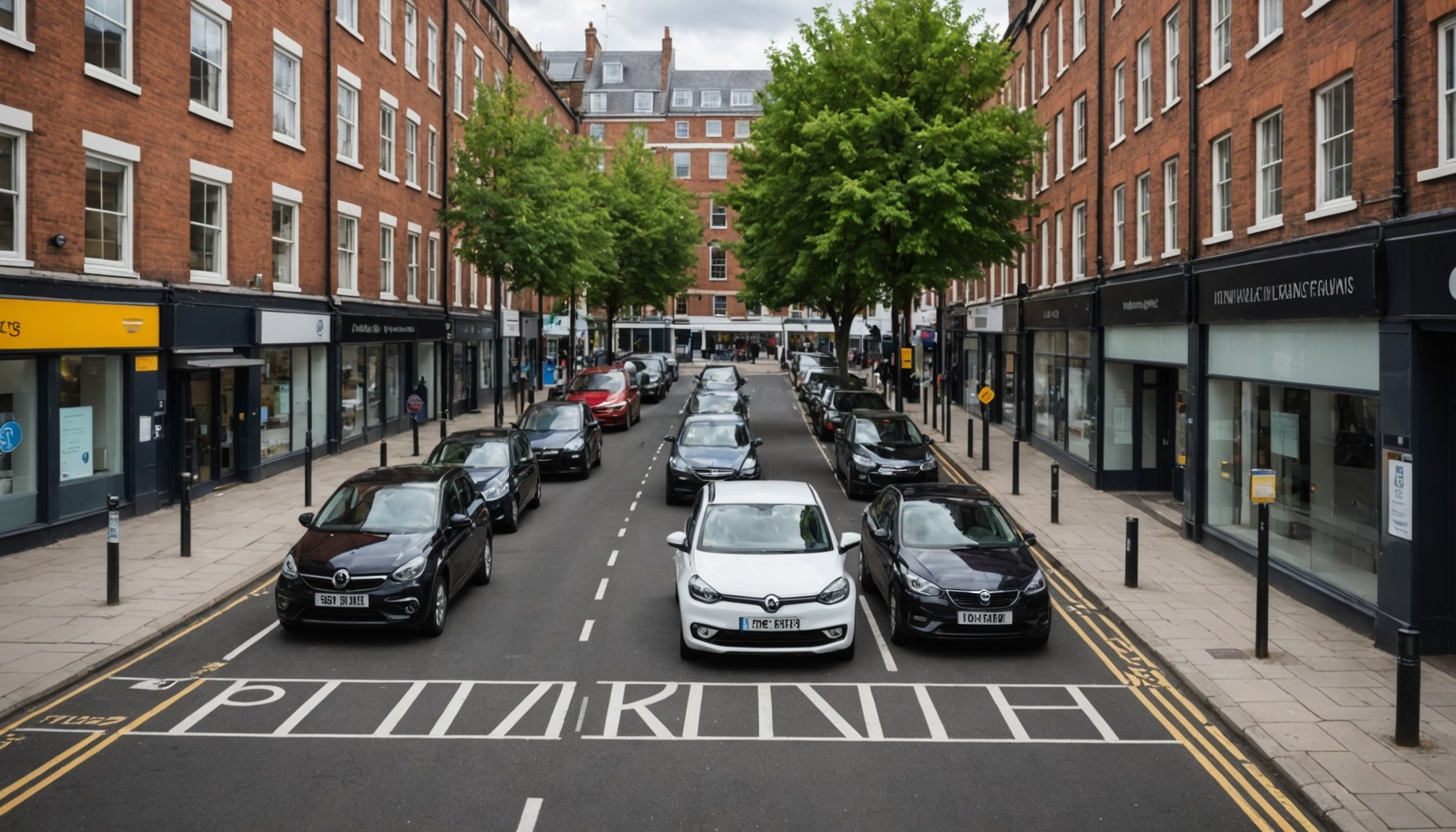Overview of Smart Parking Innovations
Advancements in smart parking solutions are transforming urban areas, addressing crucial issues like traffic congestion and urban efficiency. These innovative technologies include an array of methods such as sensor-based systems, mobile applications for parking spot reservations, and automated parking guidance. Each solution offers distinct advantages to enhance urban management’s effectiveness. One of the primary objectives is to streamline the parking process, making it both more accessible and time-efficient for users.
The importance of smart parking in urban management cannot be overstressed. It plays a pivotal role in broader urban efficiency initiatives, aiming to optimise the use of space and resources in busy cities. For instance, by reducing the time spent searching for parking, smart parking systems contribute to lowering vehicle emissions, thereby supporting environmental sustainability.
Also to read : Unveiling cutting-edge sustainable consumer electronics trends in the uk
Moreover, the connection between smart parking and broader urban efficiency initiatives is evident. These systems integrate seamlessly with public transport, electric vehicle networks, and smart city infrastructure, propelling a move towards a more sustainable urban lifestyle. Hence, adopting such technologies not only resolves immediate urban challenges but also lays the groundwork for future sustainable urban development.
Case Studies of Successful Implementation in UK Cities
In the United Kingdom, smart parking examples in cities have demonstrated remarkable success. Examining urban case studies reveals diverse strategies and outcomes across the nation.
This might interest you : How skylights designed for pitched roofs transform living spaces
London: Pioneering Smart Parking Systems
London has been at the forefront, implementing cutting-edge technologies to elevate urban efficiency. This initiative includes sensor-based parking and dynamic pricing. These innovative solutions optimise space utilisation and ease congestion, significantly benefiting both users and administrators.
Manchester: Integration of Technology and Urban Infrastructure
Manchester’s approach focuses on seamless integration with existing urban infrastructure. The city has effectively leveraged mobile apps and sensor networks to enhance smart parking solutions. The result is a streamlined parking experience, reducing time wasted in searching for spaces, thus boosting overall urban efficiency.
Bristol: Community Engagement in Smart Parking Solutions
In Bristol, community involvement has propelled the success of smart parking solutions. Engaging local stakeholders in the design and implementation processes has fostered widespread acceptance. This has notably improved the perceived efficacy of these systems and strengthened community support for broader urban initiatives.
These case studies underline the critical role of tailored smart parking strategies in addressing unique urban challenges, demonstrating strides towards enhanced efficiency in UK cities.
Benefits of Smart Parking Solutions
Smart parking solutions bring substantial urban efficiency benefits by substantially reducing both traffic congestion and emissions. With improved technology, vehicles spend less time searching for spaces, which decreases unnecessary driving and curbs related pollutants. This directly translates to a more environmentally sustainable urban setting.
Another pivotal advantage is enhanced accessibility and user convenience. Smart parking technologies like mobile applications and automated guidance systems simplify the parking process, enabling users to locate available spots effortlessly. The concurrent innovation in parking infrastructure streamlines the entire experience, fostering a user-friendly environment.
From an economic perspective, smart parking contributes positively to local businesses and municipal revenue. Efficient parking attracts more visitors, increasing foot traffic to nearby establishments. Businesses thrive as accessibility increases customer visits, often translating into higher sales. Furthermore, cities benefit from optimised parking fee collections, presenting a financially viable solution for urban management.
These benefits underscore the essential role smart parking solutions play in reshaping urban ecosystems. By focusing on improving both environmental and economic aspects, these technologies help cities progress toward smarter, more sustainable solutions. While these advantages are significant, a wise approach ensures that implementation aligns successfully with broader urban objectives.
Challenges in Implementing Smart Parking Innovations
Implementing smart parking solutions in urban areas presents several implementation challenges, impacting the overall success and adoption of these innovative systems. Identifying and addressing these obstacles is crucial for cities aiming to optimise urban efficiency.
Technical Limitations of Current Technologies
One significant challenge lies in the technical limitations of existing smart parking technologies. Many systems rely heavily on sensor networks, which can experience inaccuracies due to technological glitches or environmental conditions. A robust network infrastructure is essential for accurate and reliable performance.
Financial Implications and Funding Concerns
The financial aspect of implementing smart parking systems can deter many municipalities. High initial costs and ongoing maintenance can strain local government budgets. Securing appropriate funding and exploring public-private partnerships are strategies that can mitigate these financial concerns.
Public Acceptance and Behavioural Changes
Public acceptance remains a significant hurdle, as adapting to new technologies often requires behavioural changes among users. Public awareness campaigns and demonstrations can help increase acceptance by highlighting the benefits of these systems and addressing users’ concerns.
Understanding these challenges and strategically addressing them ensures the smooth integration of smart parking technologies, paving the way for future innovations in urban planning and management.
Future Trends in Smart Parking Solutions
The future of smart parking is set to be reshaped by groundbreaking advancements in technology trends, embracing innovations such as AI and IoT. These technologies offer promising prospects for enhancing the efficiency, accuracy, and user experience of parking systems. Integrating AI with smart parking can result in more predictive and adaptive systems, capable of anticipating user needs and managing availability dynamically.
The Internet of Things (IoT) plays a pivotal role by enabling real-time data exchange between vehicles and parking infrastructure, heralding a cohesive and responsive network. This connectivity enhances urban planning innovations, allowing seamless integration with various city-wide systems, including public transport and electric vehicle infrastructure.
The emergence of electric vehicles (EVs) necessitates dedicated EV parking spots equipped with charging facilities. As urban landscapes evolve, incorporating these smart solutions will be crucial. Urban planners are keenly observing these developments to anticipate shifts in mobility patterns and manage cities’ transition smoothly.
In upcoming years, smart mobility solutions will likely expand, offering not just improved urban parking but also enabling broader initiatives of sustainable transportation. These innovations promise to transform urban life, elevating both efficiency and environmental harmony by offering clean, streamlined processes.











